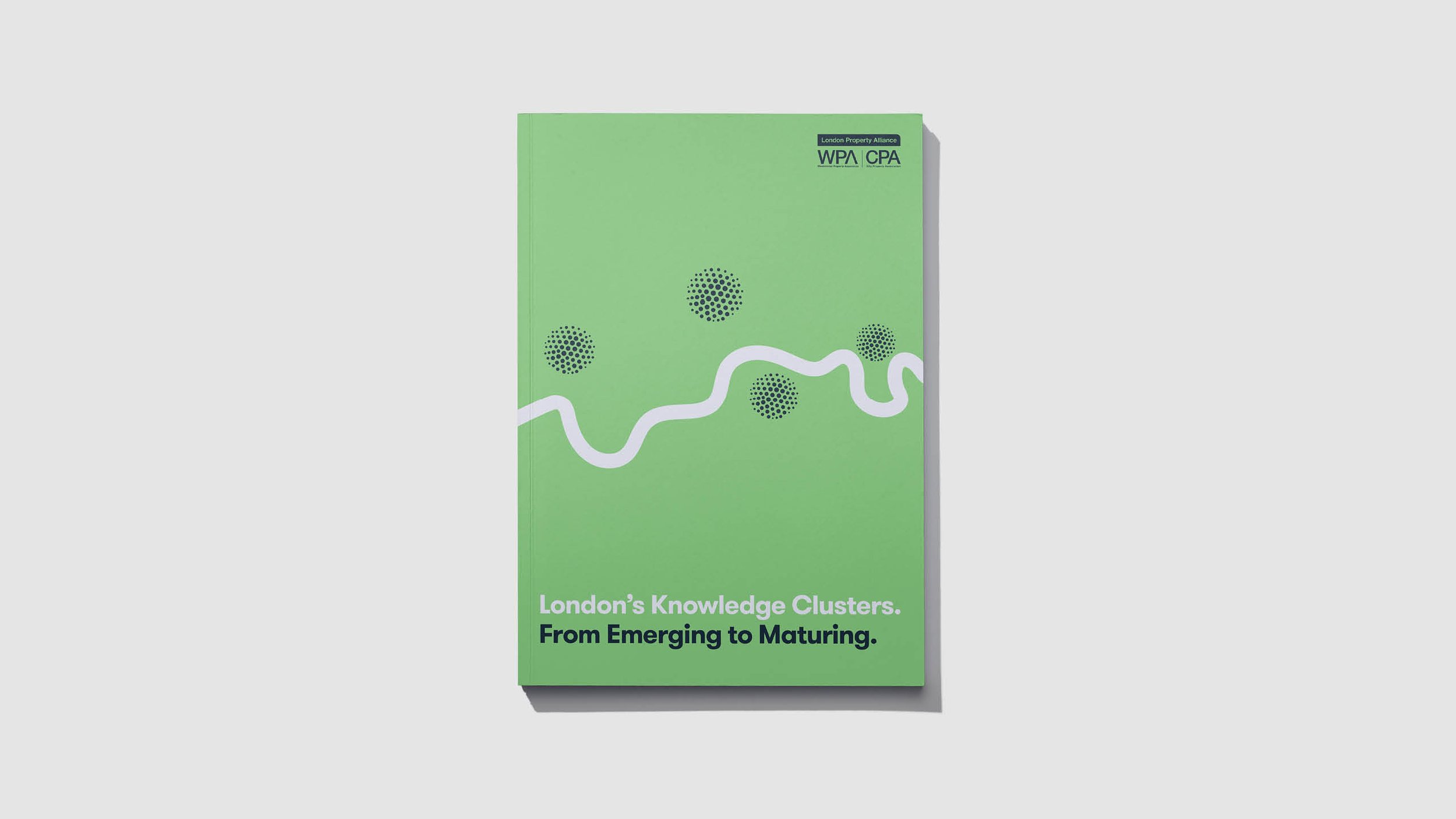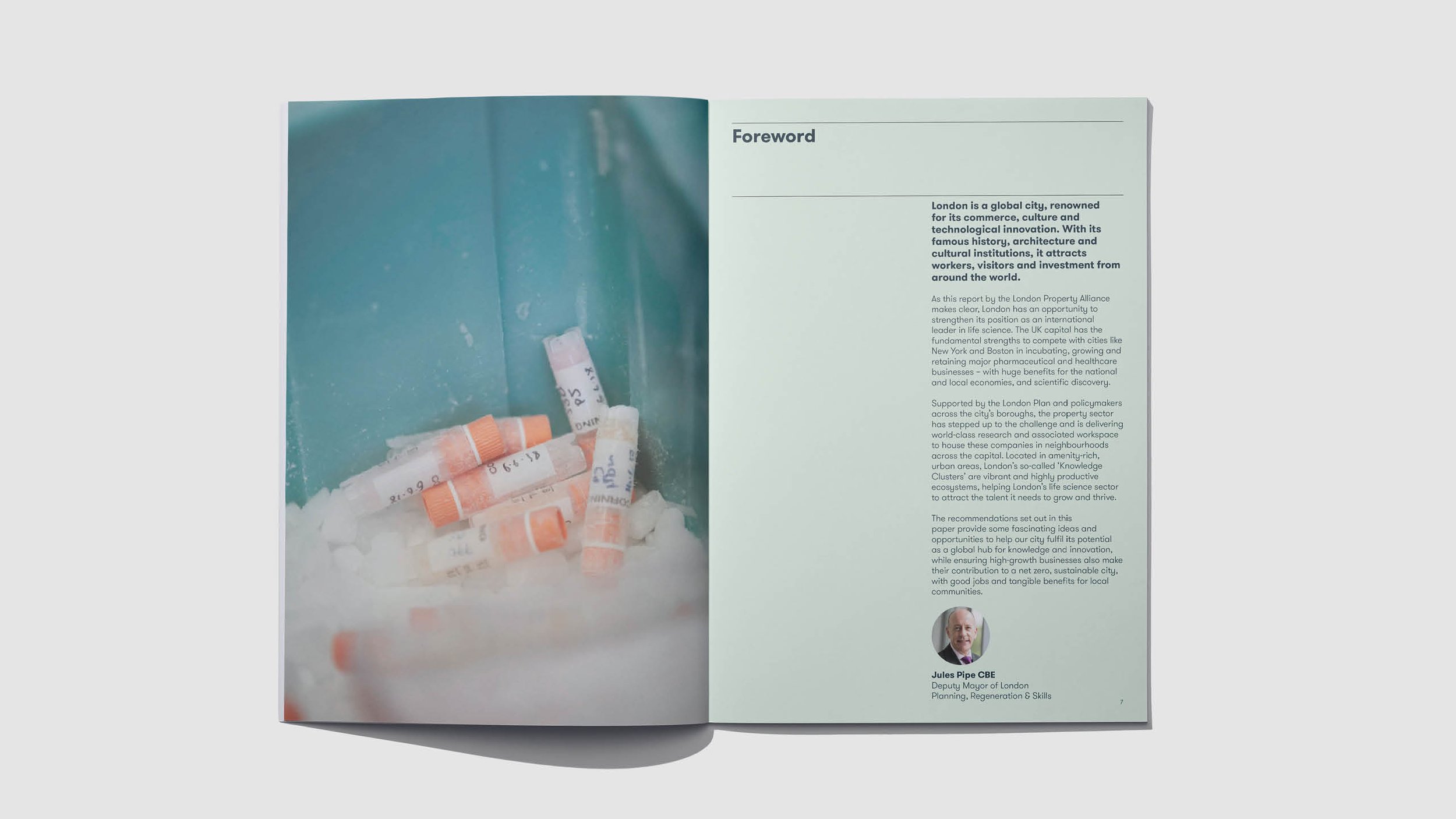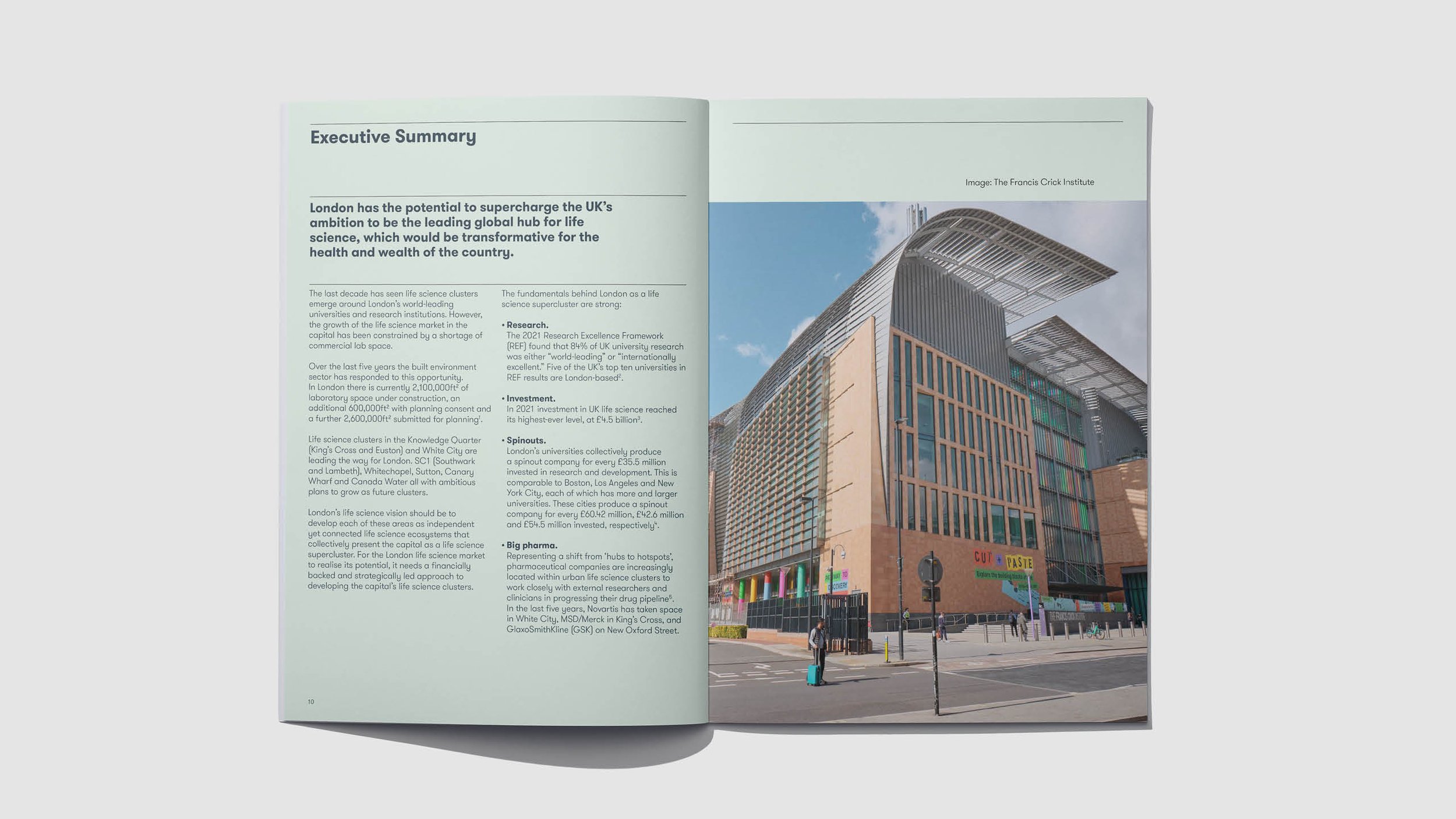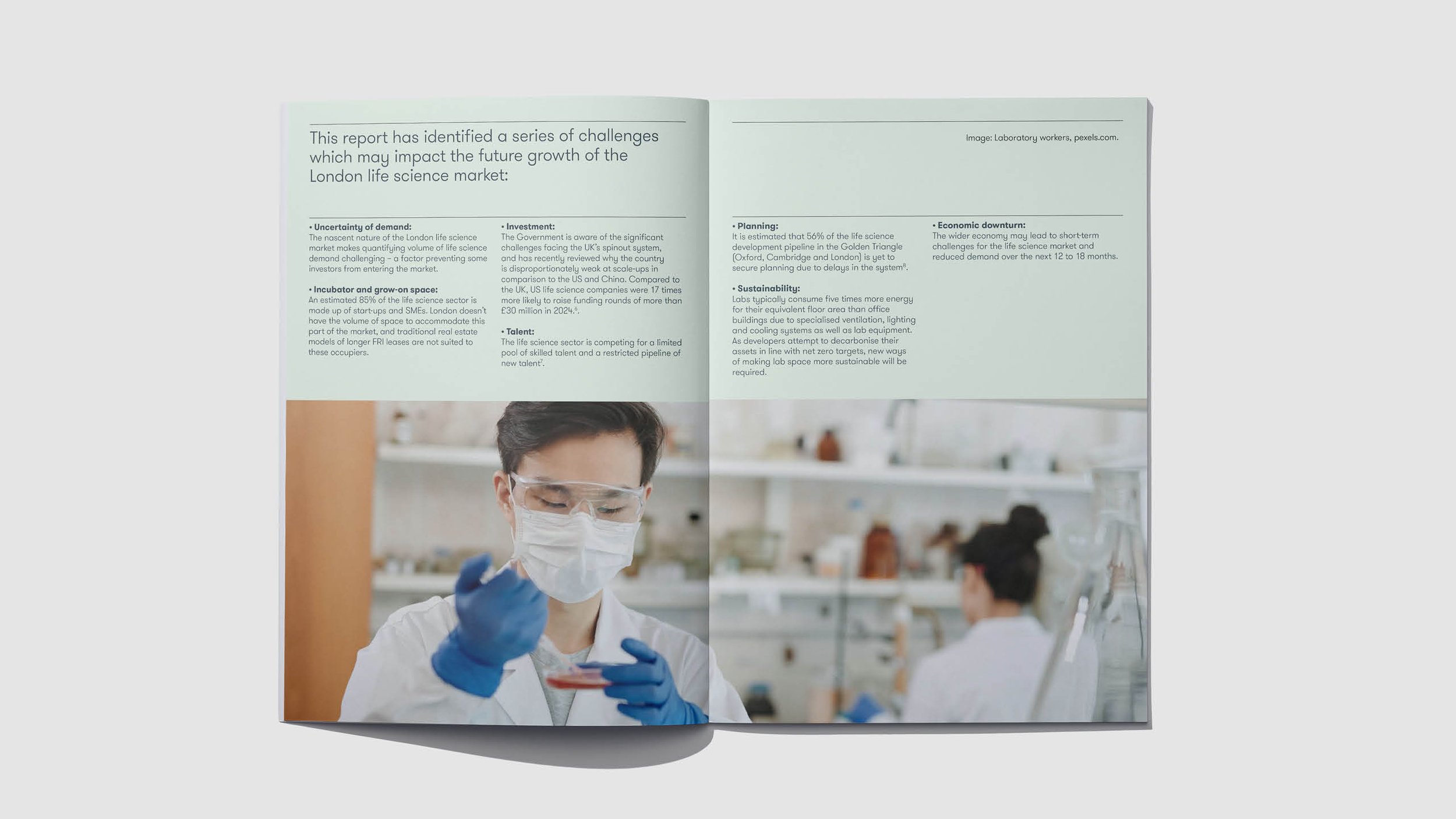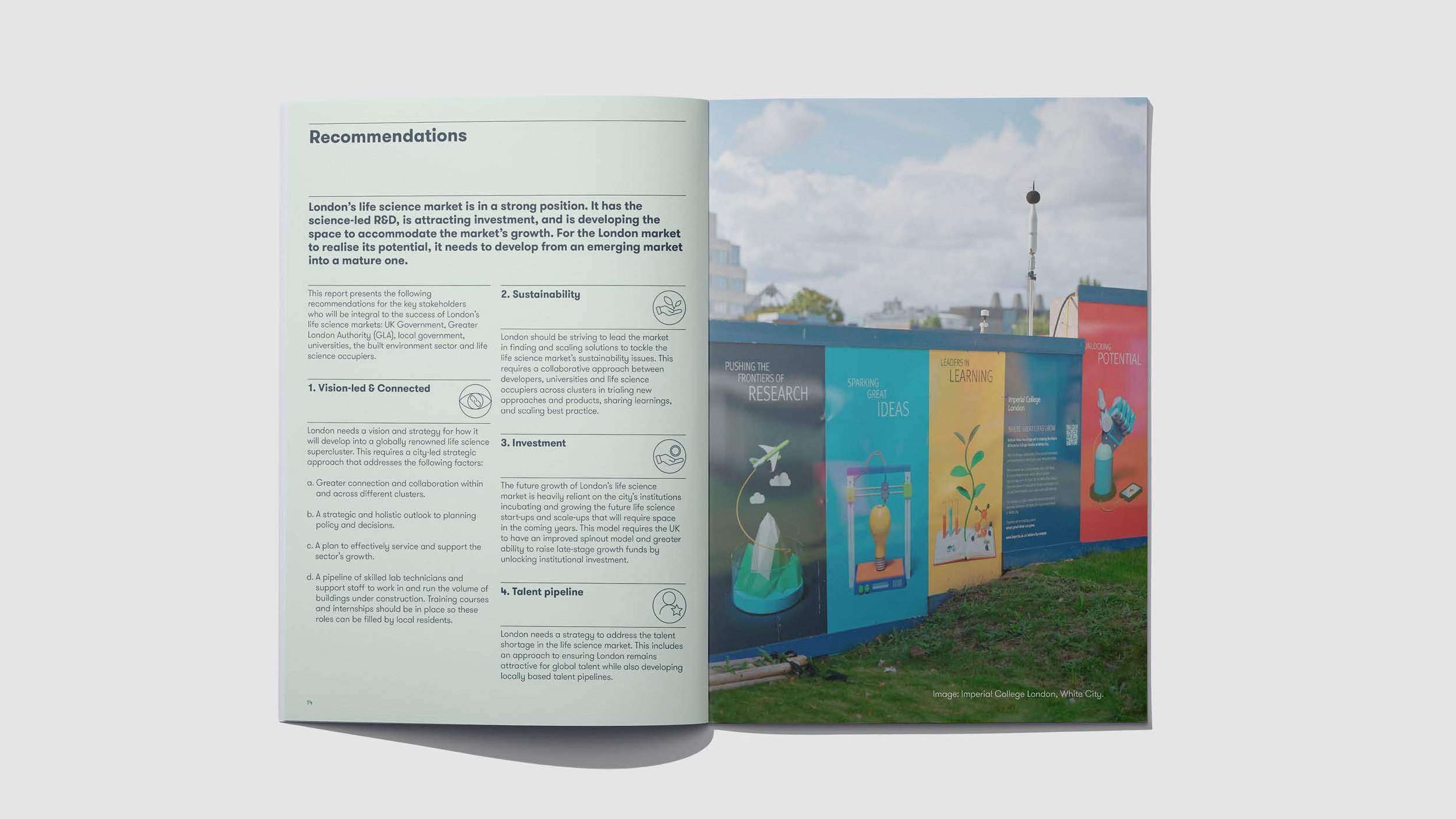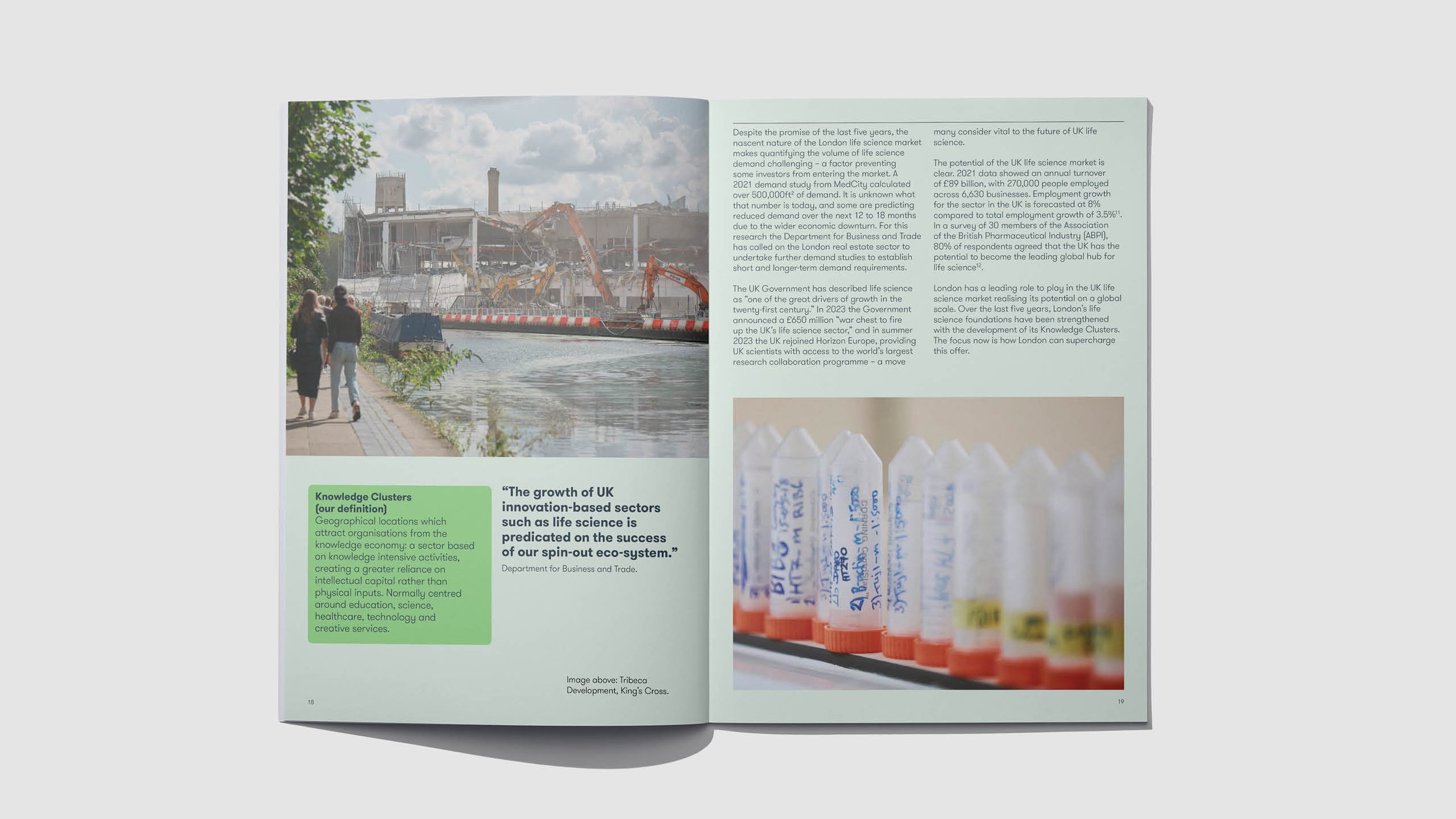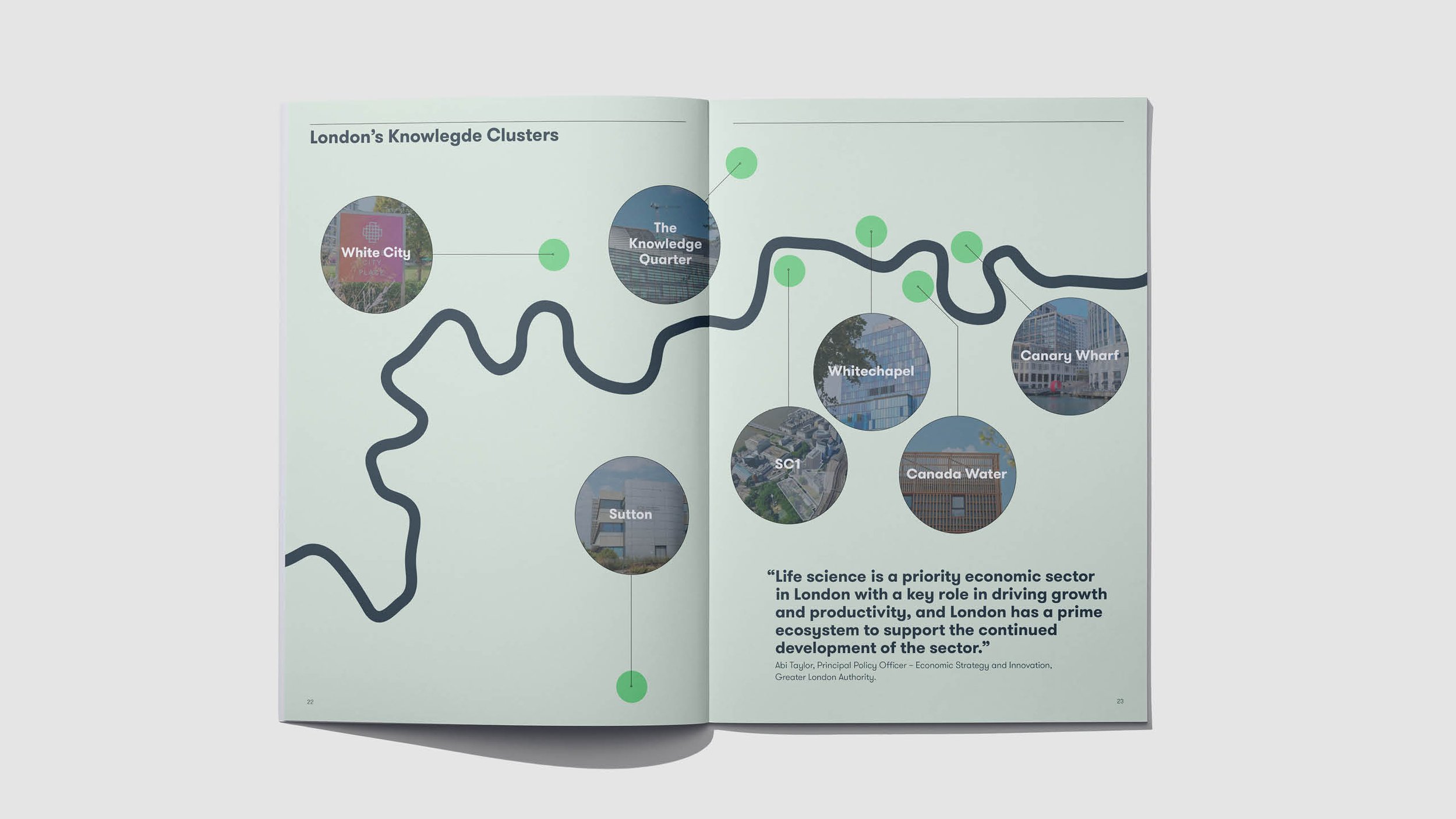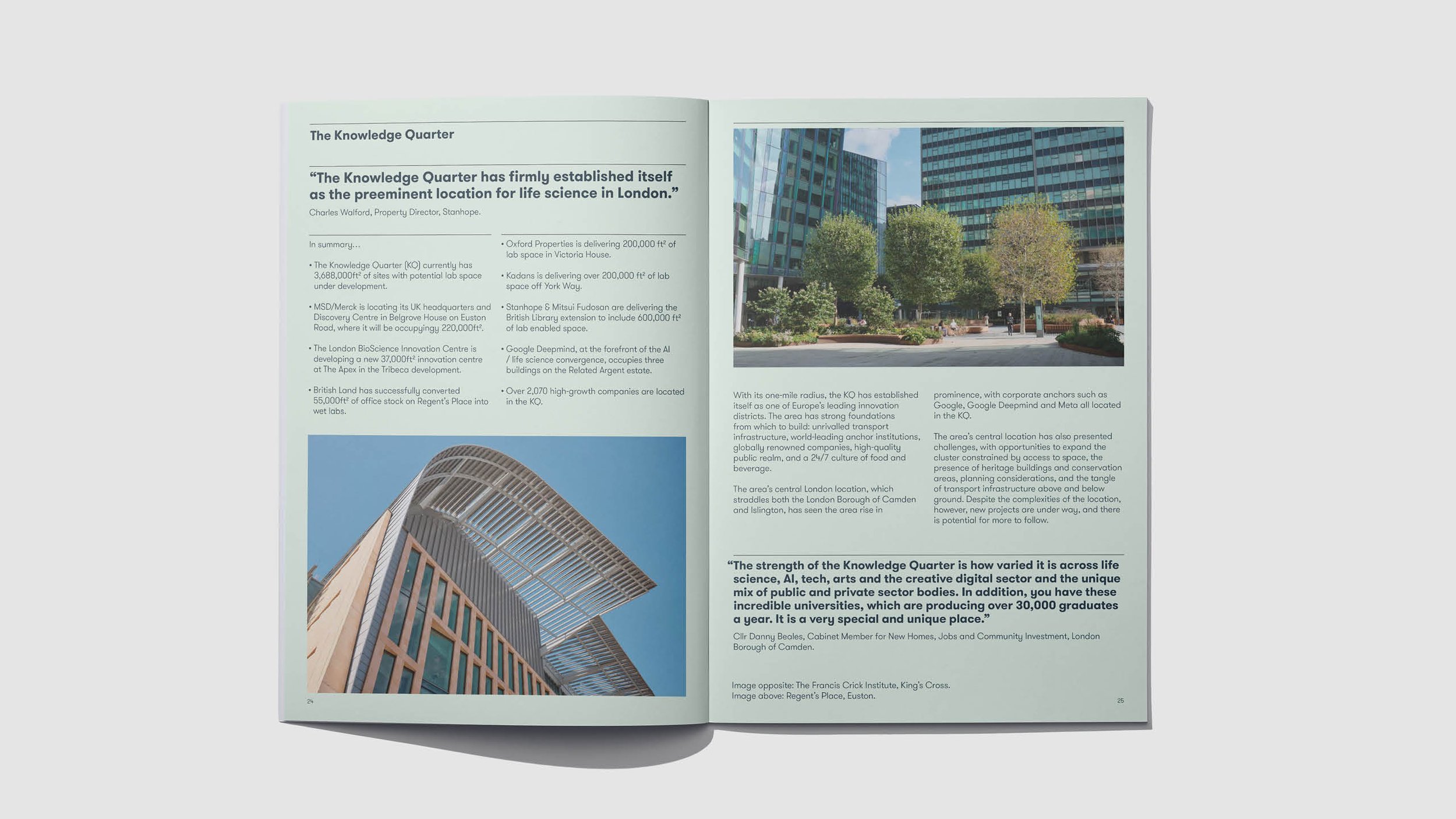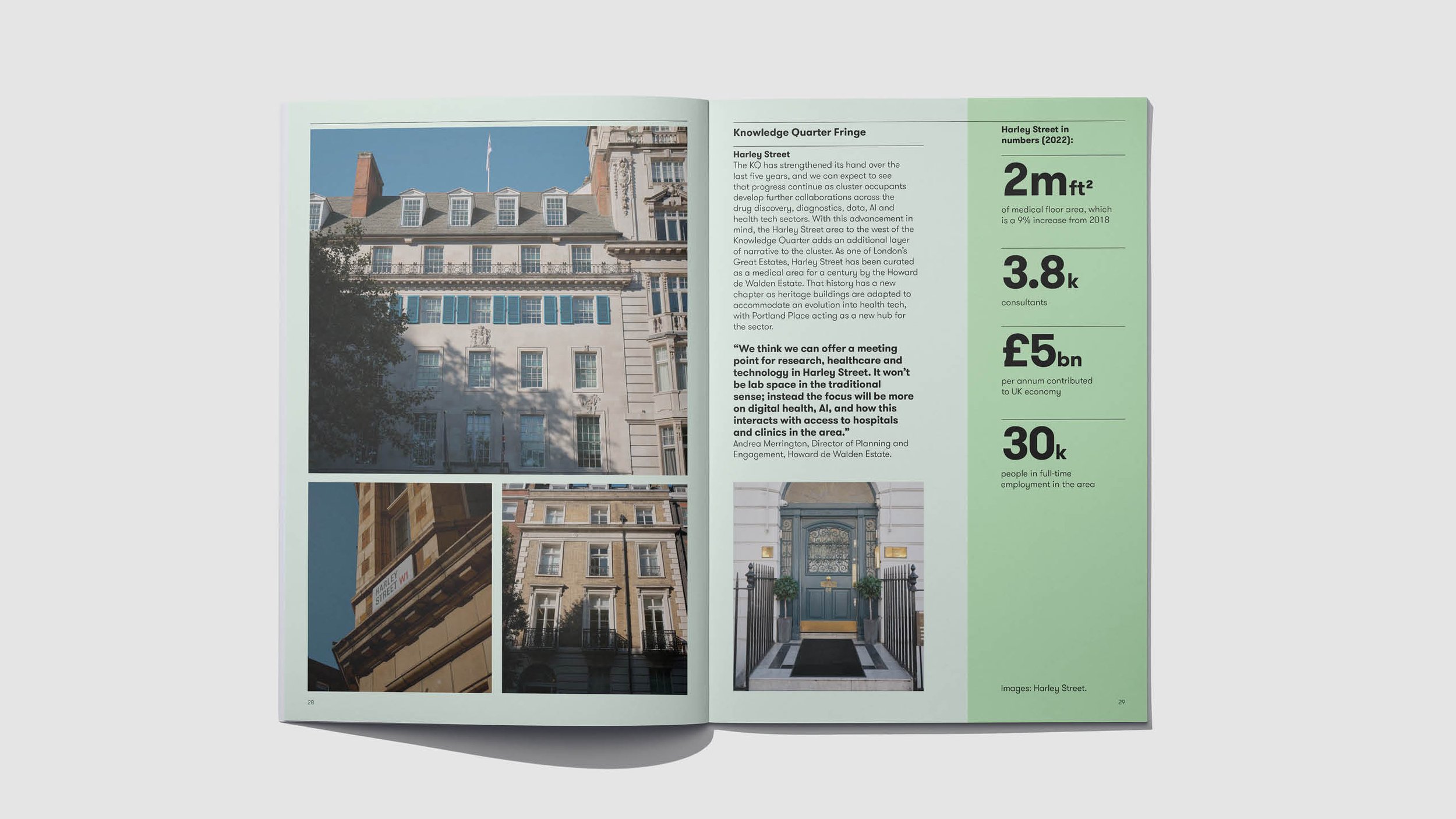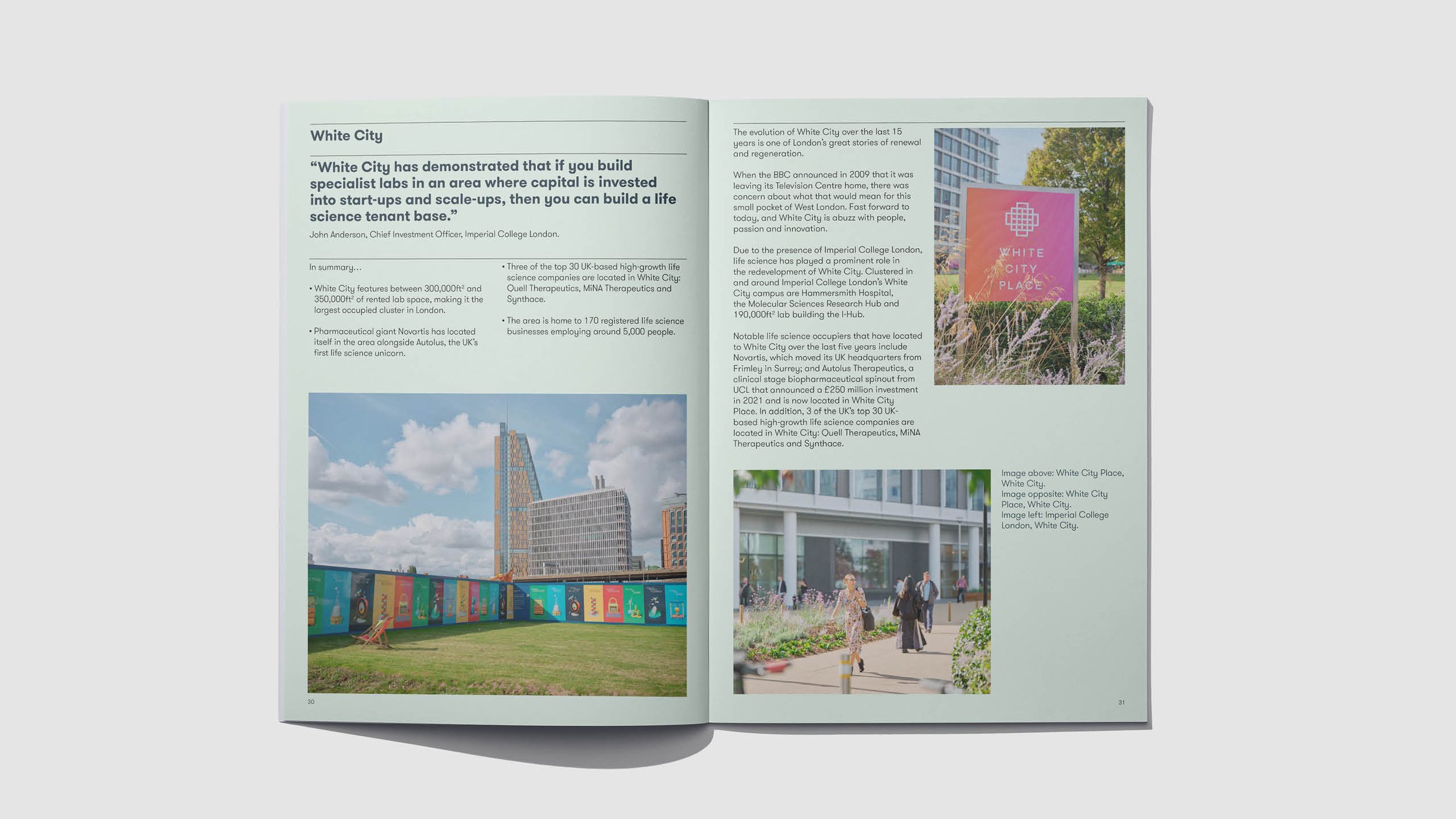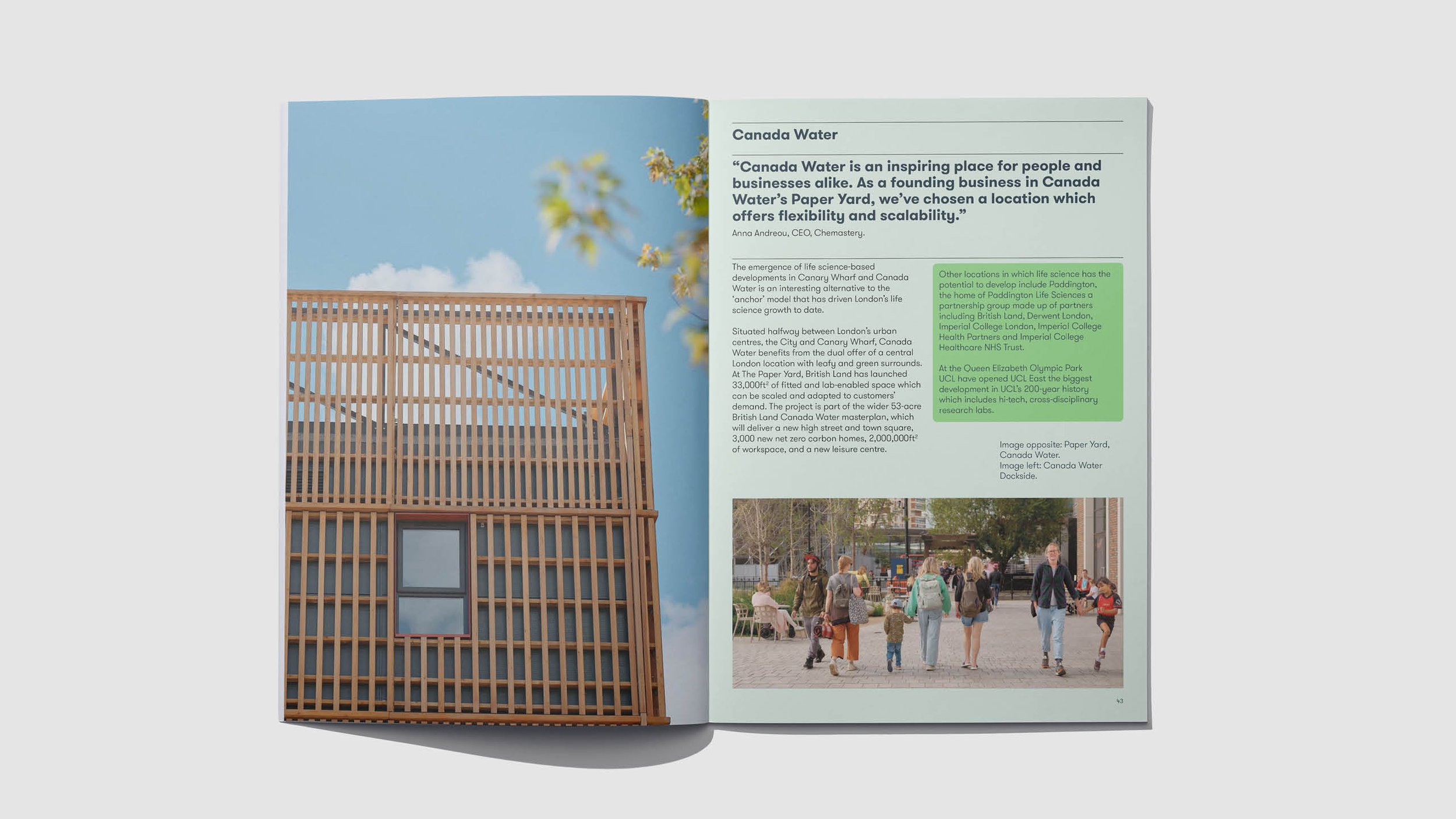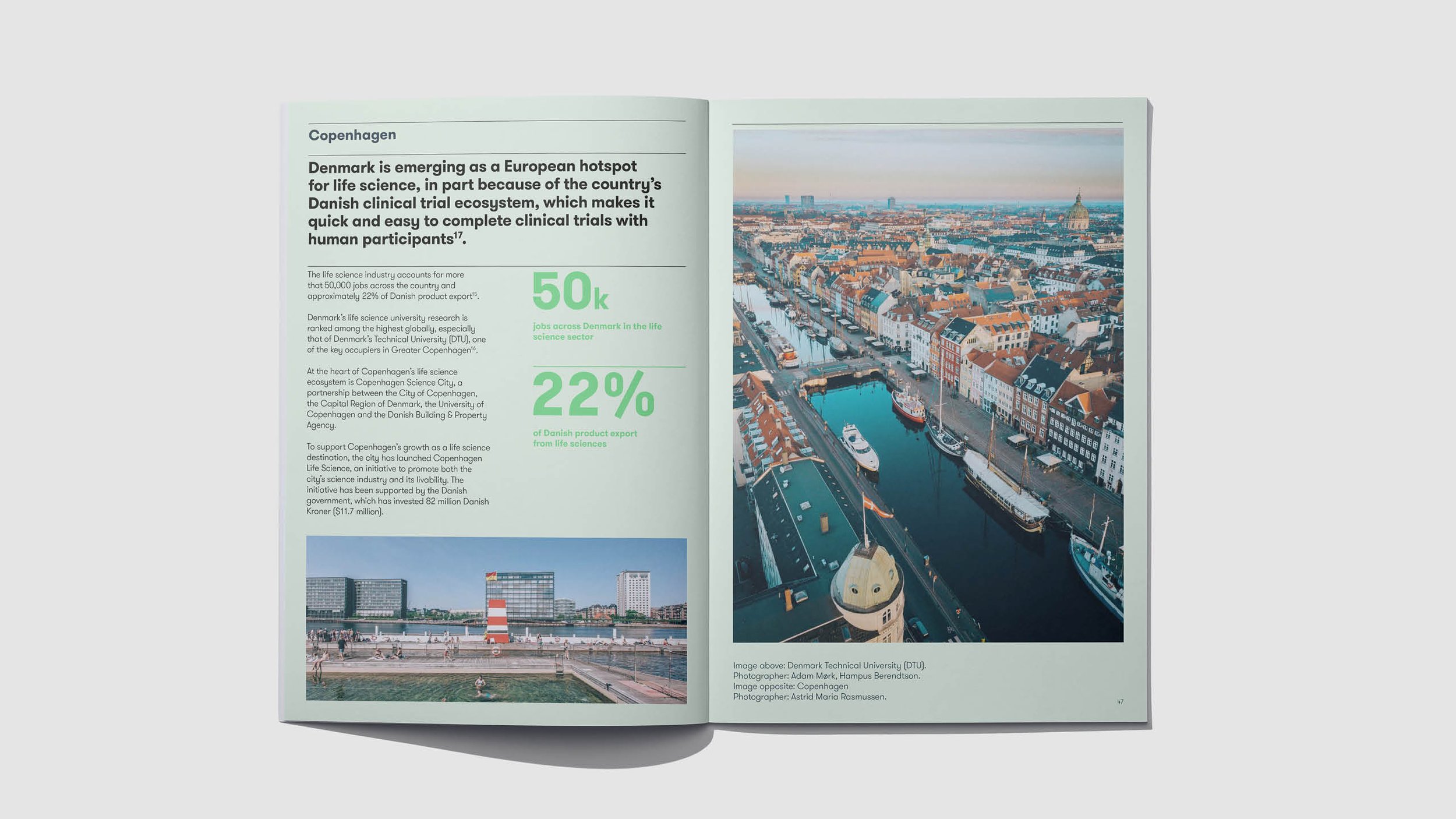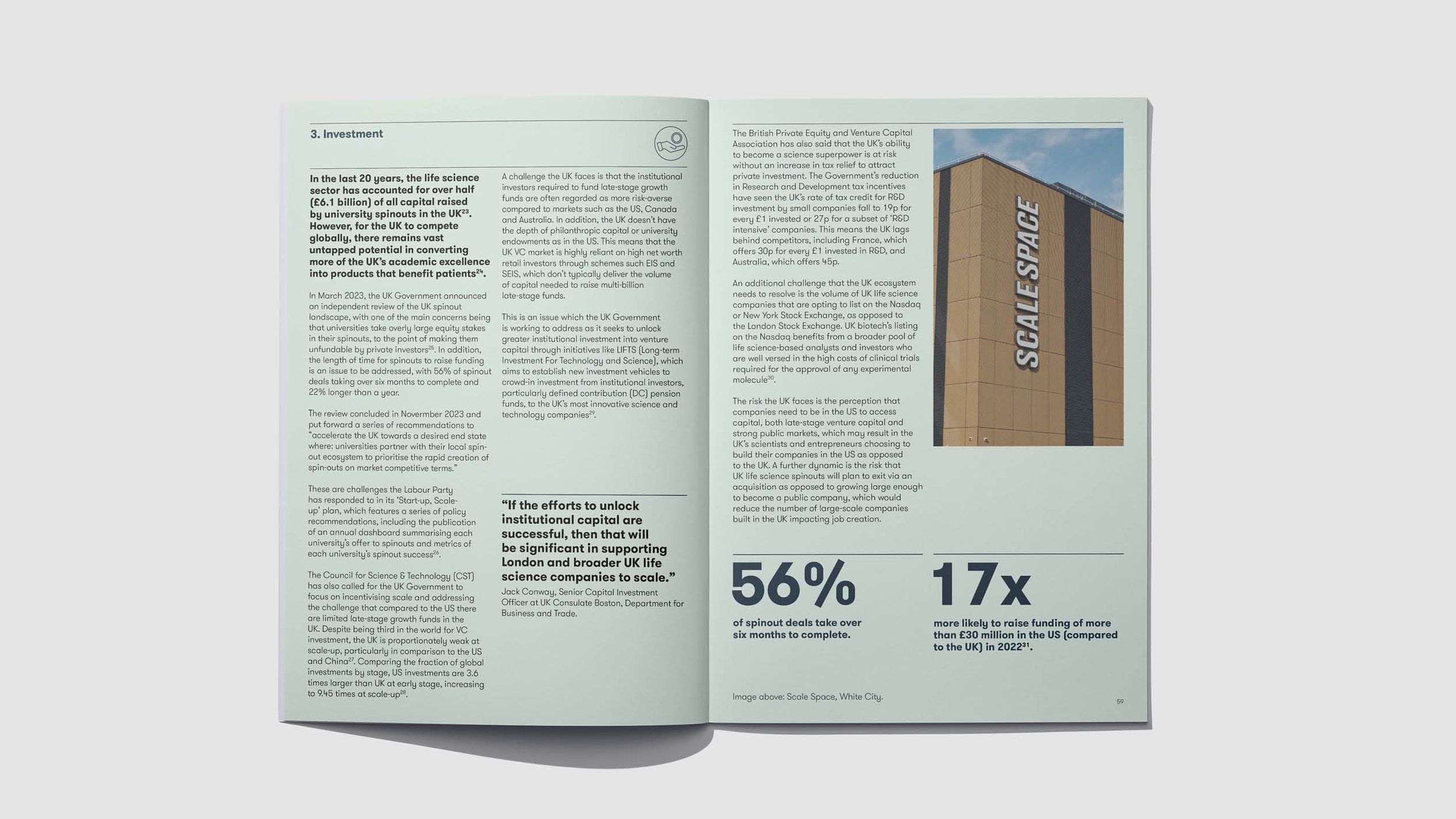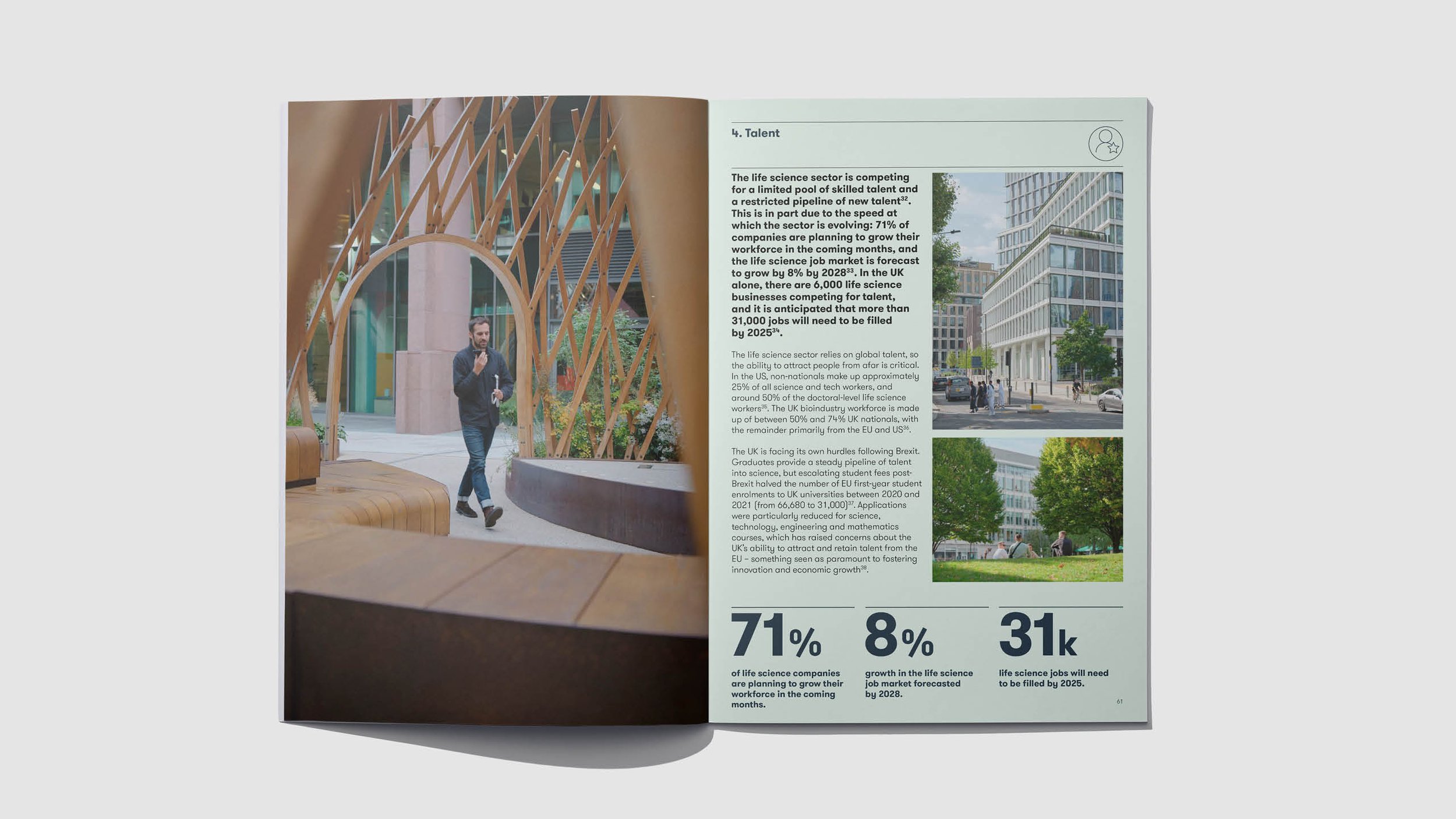London’s Knowledge Clusters: From emerging to maturing.
Client: London Property Alliance
Date: 2023
Services: Research.
London has the potential to supercharge the UK’s ambition to be the leading global hub for life science which would be transformative for the health and wealth of the country.
The last decade has seen life science clusters emerge around London’s world-leading universities and research institutions however the growth of the life science market in the capital has been constrained by a shortage of commercial lab space.
Over the last 5 years the built environment sector has responded to this opportunity. In London there is currently 2,100,000ft2 of laboratory space under construction, an additional 600,000ft2 with planning consent and a further 2,600,000ft2 submitted for planning.
Life science clusters in the Knowledge Quarter (King’s Cross and Euston) and White City are leading the way for London with SC1 (Southwark and Lambeth), Whitechapel, Sutton, Canary Wharf and Canada Water all with ambitious plans to grow as future clusters.
London’s life science vision should be to develop each of these areas as independent yet connected life science ecosystems that collectively present the capital as a life science supercluster. For the London life science market to realise its potential it needs a financially backed and strategically led approach to developing the capitals life science clusters.
This report analysis the challenges facing London’s life science market and presents a series of recommendations for the key stakeholders who will be integral to its future success: UK Government, Greater London Authority (GLA), local government, universities, the built environment sector and life science occupiers.
